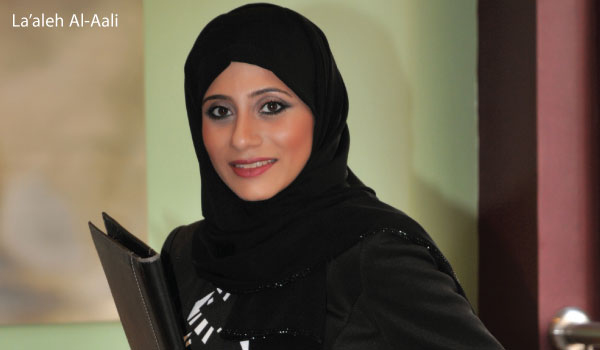Marriage need not necessarily be the end of the road to higher education for women. Indeed, as many women have discovered, it can be a stepping stone to higher aspirations and wider life goals.
Many an ambitious wife will attest to the fact that integrating a career with family aspirations has now become realistic and possible.
Far from being complacent with success, working women are increasingly turning to higher education in their quest for constant professional and personal growth.
Two Bahraini career women pursuing higher education give us an insight into their endeavours in self-actualisation.
Implementing Strategies
La’aleh Al-Aali could pass off for a high school graduate. It comes as a surprise, when this petite 20- something reveals she is a graduate teaching assistant at the University of Manchester, where she’s pursuing her PhD in the nationalisation strategies of GCC nations.
La’aleh has always been ahead of her years. She was the youngest Bahraini in 2006 to win the Chevening Scholarship, which she used to pursue a master’s degree in human resources development (HRD). Back in Bahrain after earning a distinction, she found few organisations here work within the specialisation of HRD. “Organisations in Bahrain have approached personnel management as a service. The development of the workforce, which is at the core of HRD, hasn’t yet taken off in the Kingdom. If we’re to sustain the economy, we need to retain and develop educated nationals in the workforce,” she notes.
La’aleh was implementing a performance management system for GPIC, an organisation she believes is a true model for HRD, when GPIC president Abdul Rahman Jawahery encouraged her to pursue this area further.
“I’m now looking at HR from a wider perspective, more in the realm of government policy. I want to help devise a national solution in utilising resources. I hope to make a change in Bahrain with my participation in the capacity building process,” she says. Most Bahraini youngsters don’t have a mentor to advise them on a choice of career or higher education and education itself has failed to meet the market needs, she observes.
Retaining young and educated Bahrainis is another challenge as they need employers who can trust them and develop their potential.
“I think certain positions should be nationalised by law, because only a Bahraini understands the local mindset and the culture. A national can be an effective coach and mentor,” she says.
Bahraini women too, need to contribute more to the economy, by being more active in their careers, rather than restricting themselves to certain sectors and certain working hours.
“We need to sacrifice some years of our lives before we get into our comfort zone. Women should not compromise on their family or the organisation they work for, which is a second family. It’s likely that they’ll find a balance between these two homes,” she adds.
As for herself, La’aleh concedes that she’s lucky to have an open-minded husband and parents, who have always backed her aspirations.
“If it hadn’t been for my husband’s unstinted support, I might have pursued higher learning, but it would have been of the distance learning variety,” she says.


































